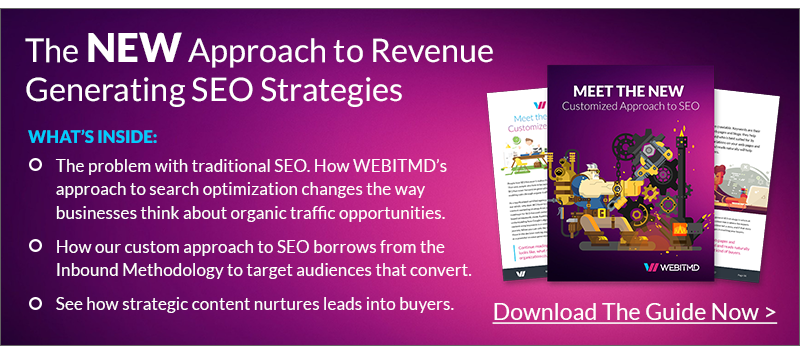Running an ecommerce SEO strategy can be very challenging, primarily due to the technology limitations that come with most ecommerce platforms, and the high volume of pages these websites tend to have. However, a well-thought, strategic blog can be the prime fuel driving organic traffic to your website, if is is properly set up and maintained by an ecommerce marketing agency.
WordPress is an ideal platform for running a strategy that attracts organic traffic, but even with the latest ecommerce plugins, most people avoid using it for an ecommerce business model. However, WooCommerce is a WordPress option, is one of the top three platforms for ecommerce, and therefore offers more flexibility and capabilities for running an ecommerce SEO strategy, as the platform seamlessly indexes with Google. The other two most popular ecommerce platforms are Magento and Shopify, and each can use a “follow” link attribute to a WordPress blog that can run as a perceived part of the website–a strategy that offers better organic results than going with the pre-existing blog options, which often offer poor and slow indexing.
There are many reasons why savvy organizations invest in an ecommerce marketing agency that specializes in SEO and blogging, as they lack the technology, experience, manpower, time, and skillset it takes to run an effective ecommerce marketing blog designed to increase traffic conversions.
For those who want to take on this endeavor themselves, this article is intended to offer some critical points that need to be followed in order to run a blog that will actually generate revenue. And for those who want to hire an ecommerce SEO agency to work with their internal team, make sure they adhere to these points. Otherwise, the agency is not worth your investment.
A Successful Ecommerce SEO Strategy Begins with Buyer Personas
You likely have target buyers who seek your products as solutions to a variety of needs. That said, your marketing agency needs to work with your internal team to create these buyer personas so that blog content can write to their specific needs while presenting a number of solutions, and that concludes by showcasing your product as the best solution to their problem. If content isn’t written for buyers (but instead is general and stuffed with keywords), it won’t convert. Making that human connection in blog content is critical to hitting your revenue targets with good organic content that converts clicks to sales.
Add a CTA to Every Blog
Let’s say you have an amazing blog that speaks to your target buyers. Then what? They might click into your main website and search for that product and make a sale. However, according to Search Engine Journal, more than 86 percent of buyer’s that have to go beyond three clicks to get to a shopping cart drop off and become missed opportunities. Every blog should have a CTA that takes readers straight to the product where they can check out, or to a place where customers can set up demos, appointments (whatever the desired conversion demands).
Pillar Pages and Blog Clusters Fuel Ecommerce SEO
Any robust ecommerce SEO strategy will have pillar pages and blog clusters to help fuel the right kind of organic traffic that will convert. A pillar page is usually a main category page or a specific page designed to house lots of textual content, designed to rank well, and convert visitors into buyers. This happens when blog clusters (an undefined number of blogs all addressing the same subject with a different topic, and speaking to a specific buyer) link to one another, and to the pillar page, which then links to the homepage. This allows “SEO juice” to circulate through the site, improve rankings, and help attract higher quality traffic. Finally, be aware that pillar pages and blog clusters do not replace the need for keywords; instead, they are meant to use longtail, broad, and other forms to improve rankings and help attract those likely to convert by adding a contextual layer to their usage.
Learn How Our Modern Organic Strategy can Empower Ecommerce SEO
Download our FREE guide on an SEO approach unlike anything else being done in the digital marketing industry, see if the approach resonates with your business, and give us a call. Together, we can find the right strategic approach that will be a game-changer for your bottom line.










(1).jpg)

.jpg)



![5 Reports to Elevate Your HubSpot Sales Dashboard [+ Examples]](https://2363531.fs1.hubspotusercontent-na1.net/hub/2363531/hubfs/Imported_Blog_Media/6-winning-examples-of-a-hubspot-sales-dashboard-2.png?width=767&name=6-winning-examples-of-a-hubspot-sales-dashboard-2.png)

